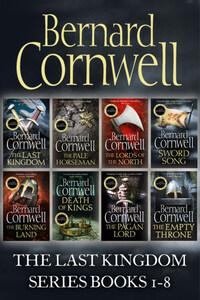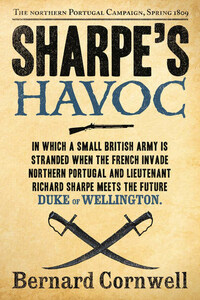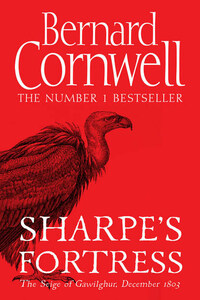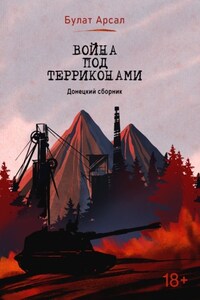Published by HarperCollinsPublishers Ltd
1 London Bridge Street
London SE1 9GF
www.harpercollins.co.uk
First published in Great Britain by HarperCollinsPublishers 2005
Copyright © Bernard Cornwell 2005
Cover layout design © HarperCollinsPublishers Ltd 2015
Photography by Kata Vermes © Carnival Film & Television Limited 2015
Bernard Cornwell asserts the moral right to be identified as the author of this work
A catalogue record for this book is available from the British Library
This novel is entirely a work of fiction. The names, characters and incidents portrayed in it, while at times based on historical figures, are the work of the authorâs imagination.
All rights reserved under International and Pan-American Copyright Conventions. By payment of the required fees, you have been granted the non-exclusive, non-transferable right to access and read the text of this e-book on-screen. No part of this text may be reproduced, transmitted, downloaded, decompiled, reverse engineered, or stored in or introduced into any information storage and retrieval system, in any form or by any means, whether electronic or mechanical, now known or hereinafter invented, without the express written permission of HarperCollins.
Source ISBN: 9780008139483
Ebook Edition © July 2009 ISBN: 9780007338825
Version: 2017-05-08
Ac her forlo berað; fugelas singað,gylleð grÅghama.
For here starts war, carrion birds sing, and grey wolves howl.
From The Fight at Finnsburh
The spelling of Place Names in Anglo-Saxon England was an uncertain business, with no consistency and no agreement even about the name itself. Thus London was variously rendered as Lundonia, Lundenberg, Lundenne, Lundene, Lundenwic, Lundenceaster and Lundres. Doubtless some readers will prefer other versions of the names listed below, but I have usually employed whichever spelling is cited in the Oxford Dictionary of English Place Names for the years nearest or contained within Alfredâs reign, 871â899 AD, but even that solution is not foolproof. Hayling Island, in 956, was written as both Heilincigae and Hæglingaiggæ. Nor have I been consistent myself; I use England instead of Englaland, and have preferred the modern form Northumbria to Norðhymbralond to avoid the suggestion that the boundaries of the ancient kingdom coincide with those of the modern county. So this list, like the spellings themselves, is capricious.
|
Ãscâs Hill
|
Ashdown, Berkshire
|
|
Ãthelingæg
|
Athelney, Somerset
|
|
Afen
|
River Avon, Wiltshire
|
|
Andefera
|
Andover, Wiltshire
|
|
Baðum (pronounced Bathum)
|
Bath, Avon
|
|
Bebbanburg
|
Bamburgh Castle, Northumberland
|
|
Brant
|
Brent Knoll, Somerset
|
|
Bru
|
River Brue, Somerset
|
|
Cippanhamm
|
Chippenham, Wiltshire
|
|
Contwaraburg
|
Canterbury, Kent
|
|
Cornwalum
|
Cornwall
|
|
Cracgelad
|
Cricklade, Wiltshire
|
|
Cridianton
|
Crediton, Devon
|
|
Cynuit
|
Cynuit Hillfort, nr. Cannington, Somerset
|
|
Dærentmora
|
Dartmoor, Devon
|
|
Defereal
|
Kingston Deverill, Wiltshire
|
|
Defnascir
|
Devonshire
|
|
Dornwaraceaster
|
Dorchester, Dorset
|
|
Dreyndynas
|
âFort of thornsâ, fictional, set in Cornwall
|
|
Dunholm
|
Durham, County Durham
|
|
Dyfed
|
South-west Wales, mostly now Pembrokeshire
|
|
Dyflin
|
Dublin, Eire
|
|
Eoferwic
|
York (also the Danish Jorvic, pronounced Yorvik)
|
|
Ethandun
|
Edington, Wiltshire
|
|
Exanceaster
|
Exeter, Devon
|
|
Exanmynster
|
Exminster, Devon
|
|
Gewæsc
|
The Wash
|
|
Gifle
|
Yeovil, Somerset
|
|
Gleawecestre
|
Gloucester, Gloucestershire
|
|
Glwysing
|
Welsh kingdom, approximately Glamorgan and Gwent
|














